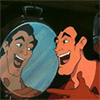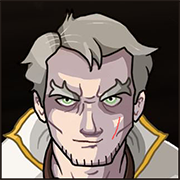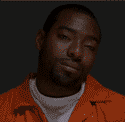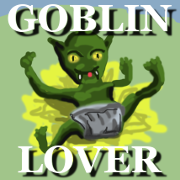|
quote:– into the ground beside my head. His breath was stinking against my face as he snarled: Here's the origin of the scar from the start of the book, then. quote:“He’s gone,” growled my unseen preserver. “Didn’t want your watch – lie still, you fool!” Author's Note posted:When the Custer part of the battle began, and how long it lasted, has never been satisfactorily settled. Reno went into action (the first shots heard by Flashman) apparently at about 3.15 p.m., and according to Sgt Martini, the last messenger from Custer on the bluffs, Custer first came under fire at about 3.20 (sooner than Flashman’s estimate). It seems the fighting on the Greasy Grass was over by about 5 p.m., if not earlier, but it is impossible to tell how much time Custer’s force took to get out on to the slope, and how long the action there lasted. Not more than an hour, certainly, and probably a good deal less. General Edgerly, who as a subaltern was in the Reno part of the fight, is said to have estimated the Custer action at fifteen minutes, or thirty at the outside; Gall, who was in the action throughout, put it at half an hour, and a Cheyenne estimated twenty minutes. So Flashman may not be far out. Differing figures have also been given for the numbers of casualties. Custer lost about 200 dead on the hill, and Gall put the Indian dead at 43, which seems rather low, although his statement suggests that many others died of wounds.  Here's Sgt. Martini, the (kayfabe other) only survivor, in 1905. This aught to be good. quote:I gulped it down, ice-cold, and managed to get my gummed eyelids opened. It was dusk, with stars beginning to show, and a chill wind blowing; beside me knelt the fellow in the buffalo-helmet, a fearsome sight and no prettier when he grinned, which he did when I croaked for information who he might be. Arbite fucked around with this message at 06:10 on Dec 4, 2022 |
|
|
|

|
| # ? May 7, 2024 03:26 |
|
quote:When you’re past the fifty mark, you don’t mend as quickly as you used to. For one thing, you don’t want to; where once on a day you couldn’t wait to be off your sick-bed and rampaging about, you’re now content to lie still and let any handy ministering angels do their stuff. When I was a brat of a boy I went through hot hell in Afghanistan, had a fort collapse on me, and broke my thigh – and a few weeks later I was fit enough to gallop an Afghan wench with my leg in a splint and old Avitabile egging me on, and get beastly drunk afterwards. Not at fifty-three; if they’d paraded the Folies Bergère past me a month after Little Bighorn I’d have asked for bread and milk instead, and damned little of that in case it over-excited me. Well, there's Flashman's take on the whole affair, including the lifelong smear campaign Mrs. Custer would wage against Reno among her other passions. Also the wiki article for the battle only mentions jamming gatlings not jamming carbines. But the author has more notes on the battle as a whole at the end. quote:Well, I’ve told you what I know about Custer, and you may judge for yourselves. He wasn’t a bad soldier, though. Most commanders make a few mistakes, and no one hears about them. He made three in turn – sending in Reno, going in himself, and coming out the wrong way too late. As a result, he lost a pretty bloody skirmish – it wasn’t a battle, really – but it shocked America, and he’ll never live it down. For his troopers – well, if any of ’em ran, they didn’t catch up with me. For the Sioux – it was their great day, for all it took thousands of them to knock over a few score. Gall gave them a victory, and Crazy Horse made siccar*, as my wife would say. Uh oh *Scottish sure. quote:The sonorous drone of the Sioux words, the liquid movements of his hands as he followed the names in sign-language, lulled the meaning away from me for a moment. Then it struck home, and my hand began to tremble on my knee, even before he said the next words, his dark eyes intent on me. Ha! He's in the poo poo now. quote:Oh, well, that disposed of that – worth a try, though. In the same steady voice he went on: Well, fair is foul and the conversation still has some more turns to go. We'll twist with them... next time!
|
|
|
|
some background on the Folies Berger
|
|
|
|
Twists and turns and karma coming due for our middle aged hero of the Empire. Amazing how little I remember of this one.
|
|
|
|
quote:“That’s right – stare all you want to!” cries he. “Have a good look! By God, it would serve you right if I went through with it! If I carried out her wishes to the last burning inch! It would have served you right if I’d let them cut you up with Custer! I nearly did.” He stood nodding grimly down at me; the grin had narrowed to a tight-lipped smile. “I nearly did. But it wouldn’t have done. Would it?”  quote:It was as though I was hypnotised. It was nonsense, of course, but I looked anyway, and began to tremble again. For I did know the face. I understood why he had drawn my eye from the first, in Chicago, and again at Camp Robinson, and why I’d felt that strange comfort when he’d ranged up beside me on that hair-trigger day of the council with the agency Sioux. Oh, yes, I knew the face; I’d seen it most days of my life. The bold dark eyes with the slightly hooded lids, the aquiline nose when he turned in profile (I know my own side-view better than most, you see, because of the weeks I spent comparing it with Carl Gustaf’s picture in the triple mirror at Schonhausen). Even the full mouth and the heavy jaw … he was a damned good-looking young devil, though, wasn’t he, this Standing Bear? But I couldn’t take it in – I’d been too numbed by this sort of shock, lately … Mrs Candy was Cleonie … this was her son … and now I was being expected to believe … Every absent father's nightmare. Also, 'More bastards than Solomon,' that's a new one but it reminds me of the Solomonic dynasty that came from him and the Queen of Sheba that ruled in Ethiopia for three millenia but that's quite a neat fact nonetheless. We'll see that family much later. quote:It’s not easy, you know. He was right enough – I daresay I have by-blows all over the shop (India, mostly, and there’s a Count Pencherjevsky in Russia whose paternity don’t bear close scrutiny) and one of ’em was sure to come home to roost in the end. It takes the wind out of your sails, though, when he turns up as a Sioux brave with a Boston accent. For I was in no doubt now, you see – somehow it was less of a shock than “Mrs Candy” had given me, or the news that he was her son; it was almost as though I’d been expecting it. You may say he could have been the child of one of Susie’s customers at Santa Fe, but I knew he wasn’t. It was not a question of Cleonie’s word, or his, or even the physical resemblance – which, in an instant, I’d recognised far more easily than Mrs Candy’s to Cleonie. I simply knew; it was there, in him, his being and bearing and manner and … style. When he was being white, that is. 12 bucks for a bowl of chowder, what's the world coming to?  quote:“Not altogether,” says he carelessly. “I tired of it – I think. It was more home than anywhere, but … I’m two people, you see” – echoing the thought in my own mind. “Anyway, I ‘came in’ to the agency early last year – it was curiosity, mostly, I guess. That was only a few months before we met in Chicago. Being a Brulé, I drifted to Spotted Tail – I’m a full-blood Sioux to him, by the way; he doesn’t even know I speak English. I’ve found it best to keep my two selves separate – mother and you are the only ones who’ve ever seen both of me. But Spotted Tail found me useful, and it was a lark going with him to Washington.” He grinned at me. “Wasn’t it, just? Here, though – my stepmother’s a beauty, ain’t she? Well, not my stepmother, I suppose – but whatever she is. She and Spotted Tail got on pretty well, I thought.” Heheheh, and we'll pause on that. See you... next time!
|
|
|
|
quote:I didn’t ponder on that, but asked why, if he’d come in to an agency, he now appeared to be living among the hostiles. Yeah, we want blood! quote:“Mother’s notion, not mine,” says he. “When I told her in Denver last year that I’d seen you in Chicago, she …” He paused. “I wondered if she’d gone a little mad. I’d always known that it was one of her fondest dreams that some day I’d be the one to pay you out for what you had done to her – sometimes I used to think it was the only use she had for me. Anyway, when I went to see her, she was like a crazy woman. She was always hard – cruel, even, but I’d never seen so much hate and spite in anyone – and I’ve lived half my life among the Sioux.” He looked up at me curiously. “What was she like … when you first knew her?” Good grief. quote:“Oh, sure. Susie used to laugh about you, and make you sound a jolly person. ‘Proper young scamp, your old man was,’ she used to say, and tell me I was another, a chip off the old block.” He laughed, shaking his head. “I really liked Susie.” Off-putting yet moving sections are ever a highlight of this series. Let's see where there travels take them... next time.
|
|
|
|
quote:We set out from the cave two days later, the two of us. As Frank put it, having come this far he might as well see me to one of the Black Hills settlements, whence I could travel east; from the cave in the Big Horn foothills it was close on a week’s ride. Crook was chasing hostiles somewhere, and Frank figured they’d be rounded up before winter, unless they made for the British border, which seemed likely. The Custer fiasco had evidently scared the Indians more than the Army, for they knew what the harvest would be, and the whisper was that only Crazy Horse was likely to fight it out. In the meantime, we went warily, Frank in his paint and me in buckskin, so that we’d be ready for either side. Pacific islander who did labour away from home, either willingly or not. Racist term in Australia, of all places. quote:“They’ll never swallow that,” says I, “and the Boston mamas won’t fancy Polynesian a bit, you know.” Oh no! quote:“What’s that? Why, we’re just going to camp! And what about Deadwood tomorrow? Good Lord, you can’t just pop off now – it’s far too late, for one thing, and we’ve had no supper.” Huhuhuh, and with this desperate pleading we'll pause for now. Let's finish the main text of the novel... next time!
|
|
|
|
 @ "Saxon in the woodpile" @ "Saxon in the woodpile"
|
|
|
|
Yeah that stood out. What’s it mean?
|
|
|
|
tokenbrownguy posted:Yeah that stood out. What’s it mean? '(Highly unpleasant racial slur for black people) in the woodpile' is an archaic American-originating turn of phrase that has similar connotations to 'fly in the ointment', assuming that you're the sort of person who might object to finding an escaped slave in your firewood storage area.
|
|
|
|
I’ve heard it used only when discussing hidden racially-inconvenient ancestors.
|
|
|
|
quote:"Look, my lad, I’ll tell you something about me, which you may well have gathered already. I don’t know what conscience means – or rather, I do, but I haven’t got one, and I don’t give a drat! Your mother – I played her a damned shabby trick, and we both know it. She tried to play me an even shabbier one in return – and it’s only the grace of God and you that she didn’t succeed. But it’s nothing to do with any of that. You’re my son.” I found I was grinning hugely, with a great lump in my throat. “Such a son. And – there you are.” Aww. quote:“No, you don’t, either,” says he dryly. “It’s nothing to do with my mother – or with you. I said I didn’t care for her much – don’t care for anyone, specially. Except old Susie, bless her black heart. She was the nearest thing to a mother I’ve had. And God knows why, but I’ve no remarkable objection to my father.” He laughed at me. “D’you know, after Greasy Grass, when I went down and the Sioux were breaking camp, I was wishing I could lay claim to you publicly. There were only two warriors they were talking about – apart from themselves, naturally: the soldier with the three stripes, and the rider with the long knife on the sorrel horse. What d’you think of that, now?” Quite the declaration at that time and place. quote:I can see that stark profile now, the raised head with the feathers behind it, outlined dark against the evening light, and remember how my heart sank, and the emptiness within me as I made my last throw. And off he rides to more grand adventures. quote:I sat and looked at the empty ridge for a while, and then rode on, feeling pretty blue. I’d only known him a week, and he was a Sioux Indian to all intents, and when you thought of all the bother there had been about him, with every Deadly Sin, I suppose, for his godparents … but if you could have seen him! By jove, he looked well. One last masterful landscape right at the end. Ah, I can just hear it. quote:There wasn’t a dollar in sight, though – just gold-dust. It changed hands in little pokes; even at the bars they were paying for drinks with pinches, and there wasn’t a counter or barrel-head in town without its scales and weights. Dust bought everything, and I had none, or a dollar either; I strode into the hotel and slapped down the gold hunter which the Minneconju had turned his nose up at, and the burly Teuton behind the desk looked at it, and me in my beard and buckskins, and sniffed suspiciously. He was. He really, really was. Author's Note posted:James Butler (“Wild Bill”) Hickok (1837–76), peace-officer and gunfighter, had deteriorated from the days when Mrs Custer observed: “Physically, he was a delight to look upon.” A former Union soldier, frontier scout, and Indian fighter, he achieved celebrity between 1868 and 1871, as marshal of Hays City and Abilene (Flashman served as his deputy at some time during this period, but so far no record of this curious partnership has been found in The Flashman Papers). The first, and reputedly the best, of the notorious Western gunfighters, Hickok is believed to have killed 17 opponents, apart from Indian and Confederate enemies. A tall, handsome figure who is said to have modelled his expression (but not his clothing) on the late Prince Albert, Hickok was a pleasant, modest and well-spoken man, if Mrs Custer and Sir Henry Stanley, the explorer, are to be believed. And then. quote:Much good it did her, for now the driver discovered a lynch-pin sprung, and his language poisoned the air. A boy was sent scurrying for a replacement and a hammer, and Hickok winked at me and called, “Don’t take any wooden nickels, Flashy,” as he sauntered back into the Number Ten. The driver thrust a crimson face in at the window, saying just ten minutes, folks, and we’ll be on our way, and we sat patiently in the Deadwood stage watching the world go by. And with that double shot of ill-fortune we've finished the novel! Quite the ride from the courthouse steps to here, wasn't it? I'll be back with the two appendices and my final thoughts... next time!
|
|
|
|
This might be the most obviously sentimental that we’ve seen the Flashman books get so far. It’s also the first time I can think of that we’ve had Flashman himself be such an unreliable narrator. What a strange, effective conceit this whole series is.
|
|
|
|
Arbite posted:Aww. In other news - I think it would make sense to got back to summarizing portions of the text, rather than reproducing every single bit of it even if you don't have much to say.
|
|
|
|
Xander77 posted:In other news - I think it would make sense to got back to summarizing portions of the text, rather than reproducing every single bit of it even if you don't have much to say.
|
|
|
|
Remulak posted:Oh no, an annotated Flashman rings all my bells. Hear, hear. I think this is a great way to go on savouring a trove of fiction which is after all limited in supply. Much like the old American West, there will be no more of it, so let us take it in while we can.
|
|
|
|
quote:The Mysterious Lives of Frank Grouard (1850–1905)  quote:The Battle of the Little Bighorn   So ends the second of Flashman's three great (recorded) American adventures. Well, second & fourth, really, but Fraser does an excellent job with bridging the two very different time periods. That's hardly the only excellence within, as characters new and old (and aged) are here to give Flashy all the grief he deserves and acclaim he does not as we read along reveling in it. Just going off the text it can be difficult to suss out exactly where Fraser's and Flashman's opinions meet and diverge on people and topics, but as you have seen and I have repeadly pointed out, the man was madly, abjectly, hopelessly in love with the landcapes of the American West. We can only hope to find a place to adore so much in our travels. This book certainly does not inspire as much of a feeling of full understanding of the westward lurching annexations that occured throughout the west as Flashman and the Great Game did with the mutiny, and it's good of Fraser to include a thorough list of sources and other recommendations throughout the book. As for the people & peoples, Flash remains as clearsighted and opportunistic as ever. I did love the hilarious on reread joke of the Brulé knife scar he used to score points on that fellow in Traveller's was administered to save his life by his own son and on that final chuckle I bid farewell to this fine novel and indeed to the leading role in this thread. Beefeater asked a year-and-a-half ago to be tagged back in when we reached Flashman and the Dragon, so let's all raise a black banner and bid him victory or death when Flashman lands himself in the middle of the Taiping Rebellion!
|
|
|
|
Well done! I have to say I consider Redskins and Dragon to be 2 of the very strongest entries in the series. Looking forward to the next instalments.
|
|
|
|
Thank you for all your work!
|
|
|
|
sniper4625 posted:Thank you for all your work!
|
|
|
|
Arbite posted:on that final chuckle I bid farewell to this fine novel and indeed to the leading role in this thread. Bravo ! Well done.
|
|
|
|
Nice work.
|
|
|
|
Beefeater, have you picked up the torch?
|
|
|
|
I read a few of the Flashman books as a teenager and really enjoyed them, but having not grown up with Empire literature I kind of missed the satire and just how deep the historical context was. Looking at them now with a deeper knowledge of history it's great how well Flashy fits into the context. I guess that's the root of the satire. Flashman is a greedy, cowardly rapist and bully - and is completely indistinguishable from his peers in outcome or outward appearance. What does that say about them? Also just to contribute, because I learn a lot of little details about the 19th century from the reread of the books in this thread - at the end of the books, Flashman senior is broke due to investing in railroad shares - he has gone broke in the collapse of Railway Mania, which was one of great speculative bubbles of the 19th century and one of the causes of the Revolutions of 1848. MinistryofLard fucked around with this message at 13:32 on Jan 8, 2023 |
|
|
|
The key thing about Flashman is that his actual person (coward, liar, rapist, adulterer, bully, etc.) is completely at odds with his public persona (brave, bluff, heroic) - and the suggestion is that real popular historical heroes are probably much more like Flashman and his feet of clay than their public image would have you believe. If you read Fraser's Mr American, he inverts this - the main character is a smart, strong, kind, straight-arrow type, and a lot is drawn from the contrast between himself and the decadence of the Edwardian Britain he settles in.
|
|
|
|
FMguru posted:The key thing about Flashman is that his actual person (coward, liar, rapist, adulterer, bully, etc.) is completely at odds with his public persona (brave, bluff, heroic) - and the suggestion is that real popular historical heroes are probably much more like Flashman and his feet of clay than their public image would have you believe. It's also notable that Flashman as a very ancient man has a significant but not plot-pivotal role in the later part of the book, a sort of extended cameo. It's very interesting how the other figures of the military/political/social upper echelons, e.g. Winston Churchill, are portrayed as seeing this old buffer with all the improbable stories which do actually seem to have some basis in fact.
|
|
|
|
Alright, let’s have at it: Flashman and the Dragon coming up this weekend. To start off, have a gander at this lady:  Although this being Flashman, you’re probably better off thinking of her like this: 
|
|
|
|
 We start with some timeless wisdom from the man himself: Flashman and the Dragon posted:Old Professor Flashy’s first law of economics is that the time to beware of a pretty woman is not when you’re flush of cash (well, you know what she’s after, and what’s a bankroll more or less?), but when you’re short of the scratch, and she offers to set you right. Because that ain’t natural, and God knows what she’s up to. The year is 1860, and Flashman is loafing around in Hong Kong, waiting for a boat back to England. Fraser is clearly aware this contradicts his established timeline and, like the good author he is, doesn’t give a poo poo: he just mentions it in a footnote. 1860-era Hong Kong looks a bit like this:  That’s the view from the mid-levels of Victoria Peak, across what’s now Central, Admiralty and Causeway Bay. The spit of land in the distance is North Point, which today hosts a pretty nice hotel bar with 280 degree views of the harbour. The church spire on the left is St John’s Cathedral, which is incidentally the only land in Hong Kong that is owned freehold; everything else is technically leased from the government. Flashy however is interested in a different view: that of Mrs Phoebe Carpenter, a priest’s wife no less. Flashman posted:I don’t know why I bothered with her…yes, I do, though; shaped like an Indian nautch-dancer under her muslin, blue-eyed, golden-haired, and with that pouting lower lip that’s as good as a beckoning finger to chaps like me – she reminded me rather of my darling wife, whom I hadn’t seen in more than three years and was getting uncommon hungry for. So he duly shows up to daily prayers and escorts Mrs C around town. Aged 37, Flashman is still big, bluff and charming, a state in no way diminished by him also having won a VC, but with a few years on him, he has learned to be philosophical about things. Flashman posted:There had been a time when I was sure it couldn’t last, and they were bound to find me out for the poltroon and scoundrel I was – but I’d been devilish lucky, and, d’ye know, there’s nothing sticks like a good name, provided you know how to carry your credit with a modest grin and a glad eye. Let’s see how it works out for him! Beefeater1980 fucked around with this message at 14:59 on Mar 15, 2023 |
|
|
|
|
Aww yes we're back
|
|
|
|
Hell yeah, we're back!
|
|
|
War is coming, as it transpires, and the pretty Mrs Carpenter is worried what this may mean for her husband’s ambitions to build a new church hall in Kowloon (the bit of the mainland just across the harbour from HK island). Flashman posted:“When Sir Hope Grant begins his campaign, you see, it is certain that there will be a cessation of all China trade, even with Canton,” says she. “And when that happens – why, there will be an end to all Josiah’s hopes. And mine.” Flashy isn’t particularly interested in this campaign; he’ll be on his way back to England. But we are! More on this in the next update. For now though, he makes soothing noises while he’s planning on getting his end away. Only to be a bit surprised when his delightful companion explains just why it is that war would be such a bad thing for herself and her husband. Flashman posted:“But even a little war will put an end to traffic with the Chinese merchants,” she lamented. “Oh, it is so hard, when Josiah and his friends have invested so wisely! To be robbed of the deserved profit that would have fulfilled his dream! It is too bad!” And she looked at me with trembling mouth and great blue eyes – Gad, she was like Elspeth, even to the imbecile parting of those crimson lips, and the quivering of her top hamper. Feeling slightly fogged, I asked, what investment had dear Josiah made? Well, poo poo.
|
|
|
|
|
Beefeater1980 posted:The year is 1860, and Flashman is loafing around in Hong Kong, waiting for a boat back to England. Fraser is clearly aware this contradicts his established timeline and, like the good author he is, doesn’t give a poo poo: he just mentions it in a footnote. There used to be a couple of comprehensive Flashman timelines out there on The Web (which tried to account for all the missing times and obliquely referenced adventures, like in Paraguay and Mexico and Australia) but I can't seem to find them. Dragon might be my favorite of all the Flashman novels. Extremely evocative of a world and setting (Qing dynasty China) that I knew absolutely nothing about before picking up the book. Plus, you get to learn about one of history's most amazing (yet almost entirely unmentioned) grand atrocities and meet one of history's weirdest characters. I'm very much looking forward to this!
|
|
|
Think of an international drug smuggler in 2023 and it’s a fair bet your mental image is something like this dude: In the 18th-19th centuries though, you should be thinking more like this:  These dapper gentlemen are William Jardine and James Matheson. Large parts of central HK are named for them, and the building where I work is named after the company they founded, a company in such profound denial of its origins that it published a history book on its 150 year anniversary in 1982 that somehow completely failed to mention that its biggest vertical for the first 100 of those years was smuggling opium into China. Here’s a picture of how things were in 1846:  And Jardine House now, known colloquially as the House of Ten Thousand Arseholes for its unique porthole style windows and tenant base of bankers and lawyers.  (It’s quite a nice office building though so thanks I guess?) But did I say smuggling? Well, I misspoke - as did Flashy. Fortunately Mrs Carpenter is on hand to put him right: Flashman posted:“D’you mean to tell me,” says I, astonished, “that Josiah is smuggling poppy?” I know the Church is game for anything, as a rule, and Hong Kong only existed for the opium trade; most everyone was in it. But it don’t go with dog-collars and Sunday schools, exactly. Parliament or Prison. Still, Opium is only the second-most morally compromised cargo he has transported so I guess that’s technically progress. But what’s going on here? Let’s learn about The Second Opium War!
|
|
|
|
In a nutshell, China for most of its history had a pretty good thing going: it bought little from the rest of the world and exported finished goods, in particular silk and porcelain, which were paid for exclusively in silver. This actually provoked a financial crisis in 15th-century Europe, which is pretty fascinating in itself, called the Great Bullion Famine. Notably, China prohibited foreign traders from selling things legitimately into the country, which meant that the trade infrastructure was in place for illegal trade and oh boy was it a big one.  Pictured: opium den in Singapore, 1941. Any similarity to a Baltimore crackhouse is purely coincidental, I’m sure. As early as the 17th century, British traders realised that while China was a rich country and didn’t want to import manufactured goods, there was a huge demand for narcotics, in particular opioids. Comparisons to Fentanyl are reasonable. Once Britain took over Bengal in the 18th century, the supply side ramped up massively, prices tumbled and the trade went from 5,000 chests/year to the rich and influential to 30,000 chests of the stuff to the mass market. Successive attempts by Emperors in Beijing to win the War on Drugs went about as well as those usually go, and the only actually successful enforcement action (by local hero Lin Zexu, the Governor-General of Guangdong), a drug seizure, kicked off a war with the British which China lost decisively. The Emperor In 1856 the new Imperial Commissioner of Guangdong, Ye Mingchen, this gnarly motherfucker:  seized a sketchy drug ship called the Arrow that was flying British colours and kicked off Opium War II, Victorian Boogaloo. This time France got involved too on the British side. It did not go well for China. Interestingly, Ye was not well liked at the time for vacillating in his policy (per Wikipedia “he would not fight; he would not make peace; he would not take steps for defense; he would not die; he would not surrender; and he would not flee." (不戰、不和、不守、不死、不降、不走), although recent historians tend to play up his patriotism and strong anti-drug stance. British records at the time mostly made fun of him for being extremely fat, which tracks with the real empire builders being a bunch of dipshit jocks like Flashman. This is all kind of happening at the same time as far as the story is concerned, although the mention of Sir Hope Grant and his “supplementary treaty”suggests it is after the treaty of Tianjin was signed in 1858 but before it was ratified in 1860. (By the way the book usually uses Wade-Giles transliteration of Chinese names; I’m using pinyin because W-G is a war crime committed by academics against God and reason). Beefeater1980 fucked around with this message at 07:16 on Mar 4, 2023 |
|
|
|
|
By the way, a genuinely excellent bit of background reading for this book: https://forums.somethingawful.com/showthread.php?threadid=3585027&userid=127245&perpage=40&pagenumber=8#post454915546 Sadly unfinished, but at least you won't get any spoilers.
|
|
|
Xander77 posted:By the way, a genuinely excellent bit of background reading for this book: Oh hell yes, this is great.
|
|
|
|
|
FMguru posted:Dragon might be my favorite of all the Flashman novels. Extremely evocative of a world and setting (Qing dynasty China) that I knew absolutely nothing about before picking up the book. Plus, you get to learn about one of history's most amazing (yet almost entirely unmentioned) grand atrocities and meet one of history's weirdest characters. I'm very much looking forward to this! Seconded, although Flashman's Lady might be my favourite, this is right up there, for the reasons you mention. I'm very much looking forward to the reactions to some of the real world history in this one. Norwegian Rudo fucked around with this message at 11:42 on Mar 6, 2023 |
|
|
|
So glad this is back! I quite agree, Dragon is one of the very strongest books in the series.
|
|
|
|
Beefeater1980 posted:Parliament or Prison. Lambeth Palace is the residence of the head of the Church of England, so he's suggesting Josiah will either be Archbishop of Canterbury or in prison.
|
|
|
|

|
| # ? May 7, 2024 03:26 |
|
Norwegian Rudo posted:Lambeth Palace is the residence of the head of the Church of England, so he's suggesting Josiah will either be Archbishop of Canterbury or in prison. Also Parliament though, the Lords specifically, ex officio.
|
|
|































